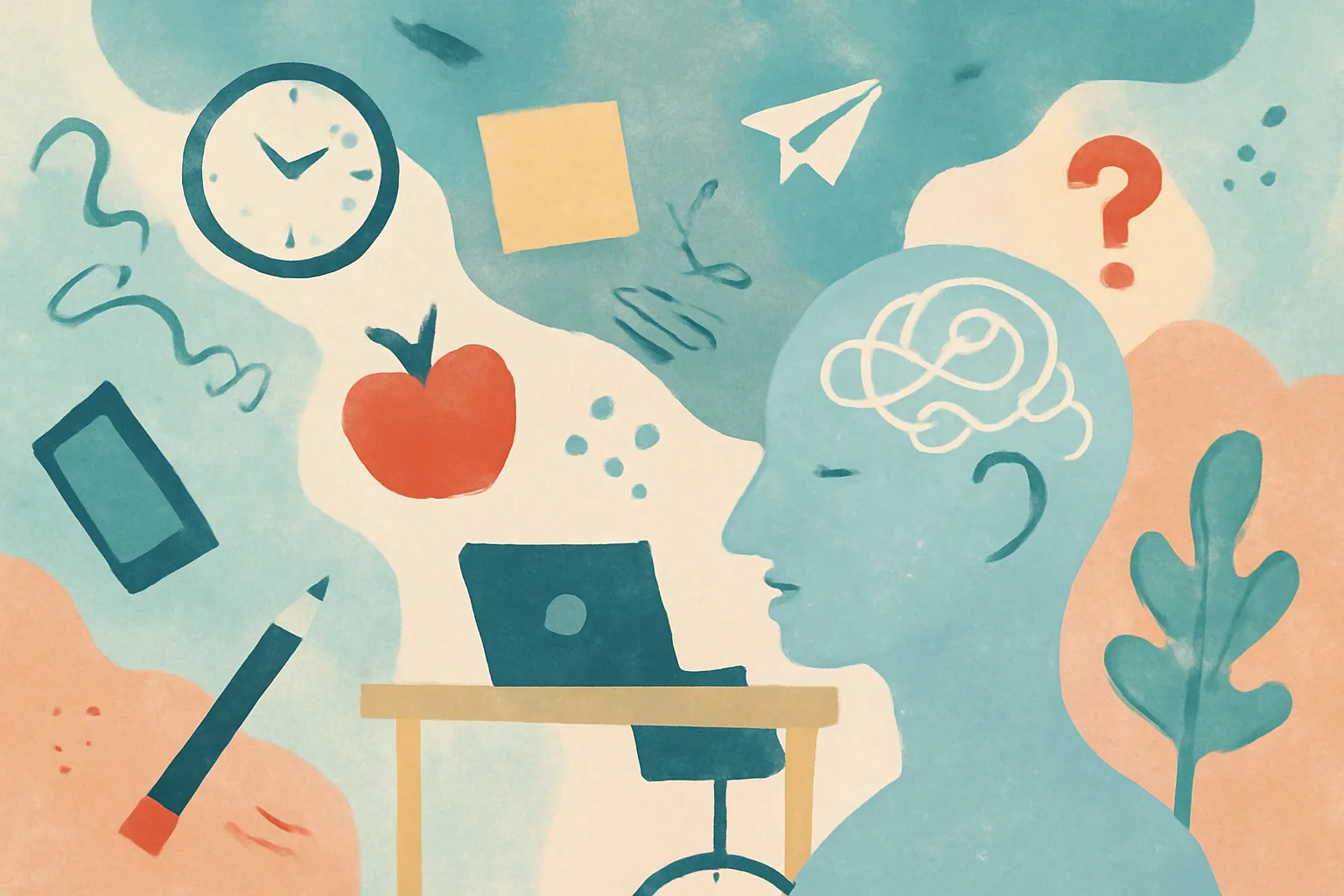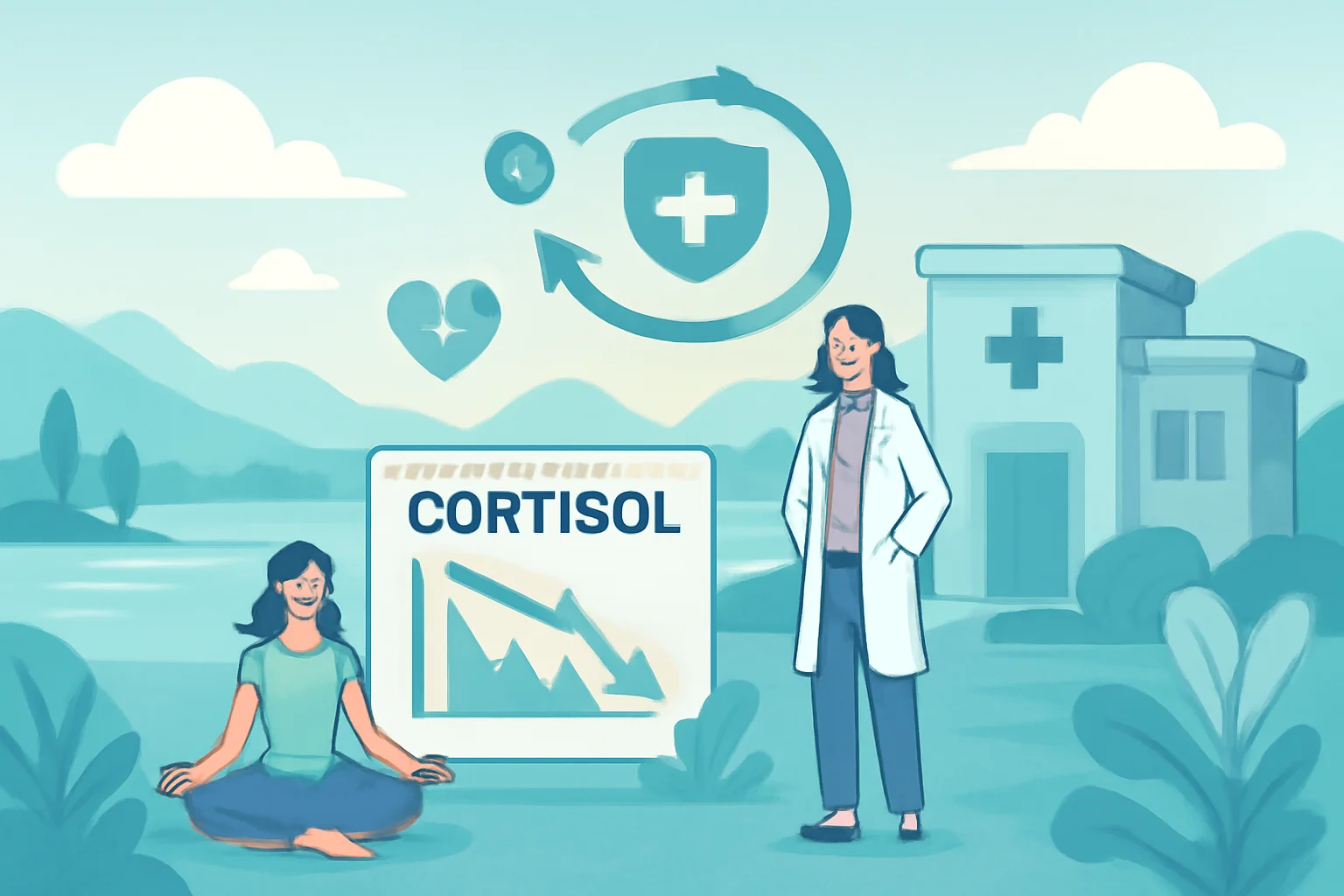-
ADHD as an Adult: Challenges and Solutions in Daily Life
ADHD, or Attention Deficit Hyperactivity Disorder, is a neuropsychological condition that is not only a childhood issue but can also manifest in adults. ADHD in adulthood can present in various forms and can affect different areas of daily life, including work, social relationships, and personal development. In many cases, adults may not even realize they have ADHD, as their symptoms can easily be mistaken for other problems or may fade from focus due to the challenges of adulthood. The diagnosis of adult ADHD is often delayed, as symptoms of inattention, impulsivity, and hyperactivity may differ from those experienced in childhood. For adults, problems often manifest more in difficulties with organization,…
-
Effective Methods for Reducing Cortisol Levels and Managing Stress
The cortisol, known as the stress hormone, plays a key role in the functioning of our body. Produced by the adrenal glands, cortisol is important for regulating metabolism, reducing inflammation, and maintaining blood pressure. However, when cortisol levels are continuously elevated, particularly due to chronic stress or an unhealthy lifestyle, it can lead to numerous health problems. Persistently high cortisol levels may contribute to anxiety, depression, weight gain, diabetes, and other chronic diseases. Understanding Cortisol Fluctuations It is important to understand that cortisol levels naturally fluctuate throughout the day. They are highest in the morning and lowest in the evening. However, if stress factors are constantly present, the hormone level…
-
Apathy and Indifference: How to Cope with Them in Everyday Life?
The feelings of numbness and apathy are emotional states that many people experience, especially when confronted with the challenges of modern life. These feelings can affect not only our mental well-being but also our daily lives. People often struggle to distinguish between these states, as the symptoms can be similar. Numbness is a form of mental exhaustion in which the individual loses interest in the world around them, while apathy signifies a decrease in motivation and activity. Understanding these two states is crucial for effectively addressing them and regaining our passion for life. In many cases, various factors can contribute to numbness and apathy, such as stress, anxiety, or even…
-
The role of cortisol levels in stress management and health
The cortisol, also known as the “stress hormone,” plays a crucial role in the functioning of the body. It is produced in the adrenal glands and regulates various physiological processes, including metabolism, inflammatory responses, and reactions to stress. Cortisol levels fluctuate throughout the day, typically peaking in the morning and being lower in the evening. Maintaining a balance of this hormone is essential for well-being and a healthy lifestyle. Cortisol levels can rise not only due to stress but are also influenced by other factors such as sleep quality, nutrition, physical activity, and psychological state. Chronic high cortisol levels can lead to various health problems, such as weight gain, sleep…
-
Loss of Appetite and Nausea: Causes and Solutions in Everyday Life
The loss of appetite and nausea are two common symptoms that can be associated with various health issues. These phenomena often indicate a temporary condition, but if they persist, they may signal more serious problems. Loss of appetite, which refers to a decreased interest in food, can be attributed to various causes such as stress, anxiety, or even physical illnesses. In contrast, nausea, which refers to the sensation of queasiness, can also have a wide range of triggers. Both symptoms can significantly impact the quality of life as they affect nutrition, well-being, and daily activities. It is worth understanding what might be behind these symptoms and when it is advisable…
-
Signs of Depression and Treatment Options for Apathy
The modern lifestyle and everyday challenges cause stress and anxiety for many people. Workplace expectations, family obligations, and social interactions all contribute to some losing their motivation, which can lead to either apathy or depression. Apathy is a temporary state that often results from fatigue or boredom, while depression is a more serious, persistent mental condition that has a much deeper impact on an individual’s life. The feeling of apathy appears in almost all of our lives, especially in monotonous weekdays. Someone may feel like they have no interest in anything one day, while finding themselves energetic and motivated another day. In contrast, depression presents a much more complex and…
-
The Causes of Apathy and Lack of Energy and Possible Solutions
The modern lifestyle is often exhausting, as work, family, and societal expectations all contribute to feeling tired and drained. Apathy and lack of energy are often confused, yet they are two distinct phenomena that can be traced back to different causes and solutions. Apathy is a type of mental state in which an individual experiences disinterest and lack of motivation, while lack of energy stems from physical or mental exhaustion, making it difficult to carry out everyday activities. In today’s fast-paced world, more and more people are struggling with these issues, and it is important to recognize the signs so that steps can be taken for improvement. Proper understanding and…
-
The Impact of Depression and Stress on Our Daily Lives
A fast-paced modern world and constant expectations affect many people’s lives. Stress and depression, as two common mental health issues, are often confused with one another, but they are actually different conditions. Stress is most often a temporary state that arises from external circumstances such as workplace pressure, personal relationships, or financial concerns. In contrast, depression is a more persistent and deeper emotional state characterized by sadness, disinterest, and loss of energy. The occurrence of stress and depression is often closely intertwined. Prolonged stress can deteriorate a person’s mental state, leading to the onset of depression. The challenges of everyday life, workplace expectations, and personal problems can all contribute to…







